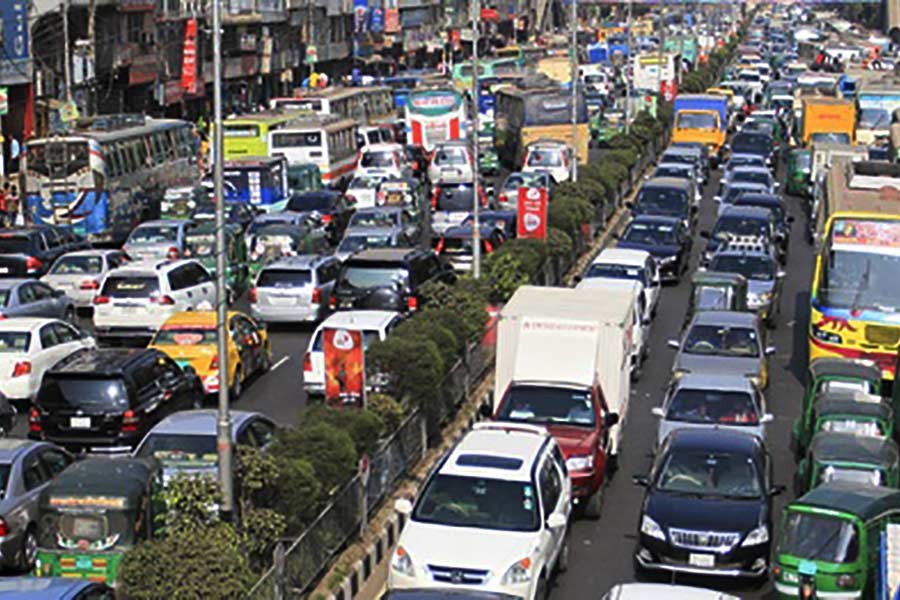
Published :
Updated :

After a brief spell of little over a week during the Eid holidays, the city roads are back to their original shapes, forms and looks-vehicle-chocked, dusty, noisy and accident-prone, to say the least. Newspaper reports say the traffic department of the metropolitan police has taken up some fresh moves in the capital to discipline plying of vehicles that among others include apprehending drivers of public and private transports without proper licences, stopping movement of unfit vehicles, and taking strong punitive actions against unruly driving.
Unfortunately, things have not improved at all, and at times it seems the roads are rendered even more chaotic by the frequent stopping and checking of vehicles, even on the middle of the roads. One has reasons to believe that the drive currently on in the capital is no different from many similar drives in the past that left no positive impact on the traffic situation in the capital.
Sporadic drives do not help, and in a situation such as Dhaka's road traffic where unruliness of all conceivable varieties reigns supreme, occasional drives are ineffective as these are often launched without any planned objective and with no clear course of action. It is here that many feel that the only way to deal with traffic problems is to implement the Road Transport Act. It is sad that the Act that looked like a game changer in the country's transportation sector has apparently slipped into oblivion. There is no move at all to implement the Act meant to discipline the anarchic road transport system of the country. Although several months have elapsed since the Act was passed in parliament, the rules of procedures required to make it effective are yet to be framed. There are no indications, reportedly, from relevant government agencies of the progress of work in this regard. Following the country-wide student outrage protesting road anarchy, the Road Transport Act 2018 was passed in parliament in mid-September last year. Road safety campaigners allege that the government is delaying implementation of the law without any valid ground. They also allege that the authorities are trying to secure the interest of transport owners and workers by delaying enforcement of the law -- at the expense of road safety.
Against this backdrop, a more upsetting piece of information is that more than 458,000 unfit vehicles presently ply the roads in the country, of which 168,000 operate in Dhaka alone, according to a report of the Bangladesh Road Transport Authority (BRTA) submitted to the High Court (HC) recently. During hearing on the issue, the HC bench observed that unfit vehicles were being driven by drivers without valid licences under the very nose of law enforcers. The HC, however, has asked for a detailed report from the BRTA in this connection.
It is no doubt intriguing that although the transport regulator BRTA has knowledge of such a large number of unfit vehicles, yet it cannot bring them to book. Most accidents occur because of unfit vehicles run by drivers with fake or improper licences. The BRTA has to find a way out, no matter how arduous it might be, to ensure that there is no breach or departure from observance of rules when it comes to vehicular fitness or drivers' licences. It is also incumbent on the authorities to implement the Road Transport Act.


 For all latest news, follow The Financial Express Google News channel.
For all latest news, follow The Financial Express Google News channel.